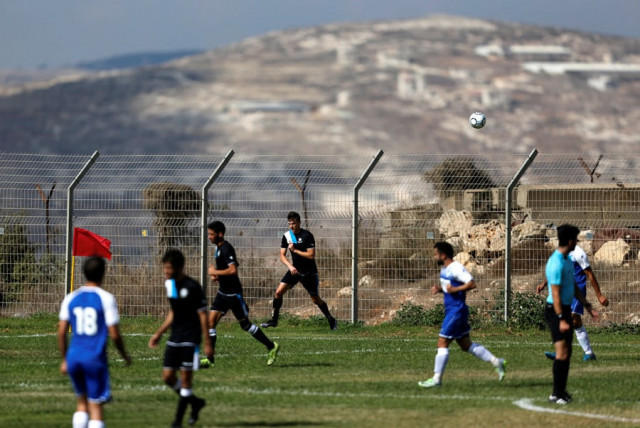Palestinians urge FIFA to act on settlement clubs
Six Israeli teams are based in settlements, which are considered illegal under international law

PHOTO: REUTERS
Six Israeli teams are based in settlements, which are considered illegal under international law, and FIFA is expected to discuss the issue during its executive committee on Thursday and Friday.
Palestinian FA head Jibril Rajoub called on FIFA to force Israel to either expel the clubs or relocate them inside Israel’s recognised borders.
US government condemns new Israeli plan on settlements
“We are sending a message to the international community and the executive committee of FIFA that the time has come to solve this matter,” he said.
FIFA president Gianni Infantino last week told AFP the settlement clubs were a “priority” for him.
Asked by AFP what they would do if FIFA didn’t rule in their favour this week, Rajoub said they could take the matter to the Court of Arbitration for Sport (CAS).
“We will take it to CAS and demand FIFA respect international law,” he said.
Israel risks FIFA ban over occupied land row
The Israel Football Association has accused the Palestinians of dragging sport “from the football field into a political one”, saying it wants to develop the game as a “bridge connecting people and not as a wall that divides them”.
Wilfried Lemke, special adviser to the UN secretary-general on sport for development and peace, last week wrote to FIFA in support of the Palestinians’ case.
“All teams playing in recognised FIFA competitions should abide by the laws of the game,” he said in a letter.
A FIFA committee headed by South Africa’s Tokyo Sexwale was established last year to consider complaints against the Israeli FA.



















COMMENTS
Comments are moderated and generally will be posted if they are on-topic and not abusive.
For more information, please see our Comments FAQ